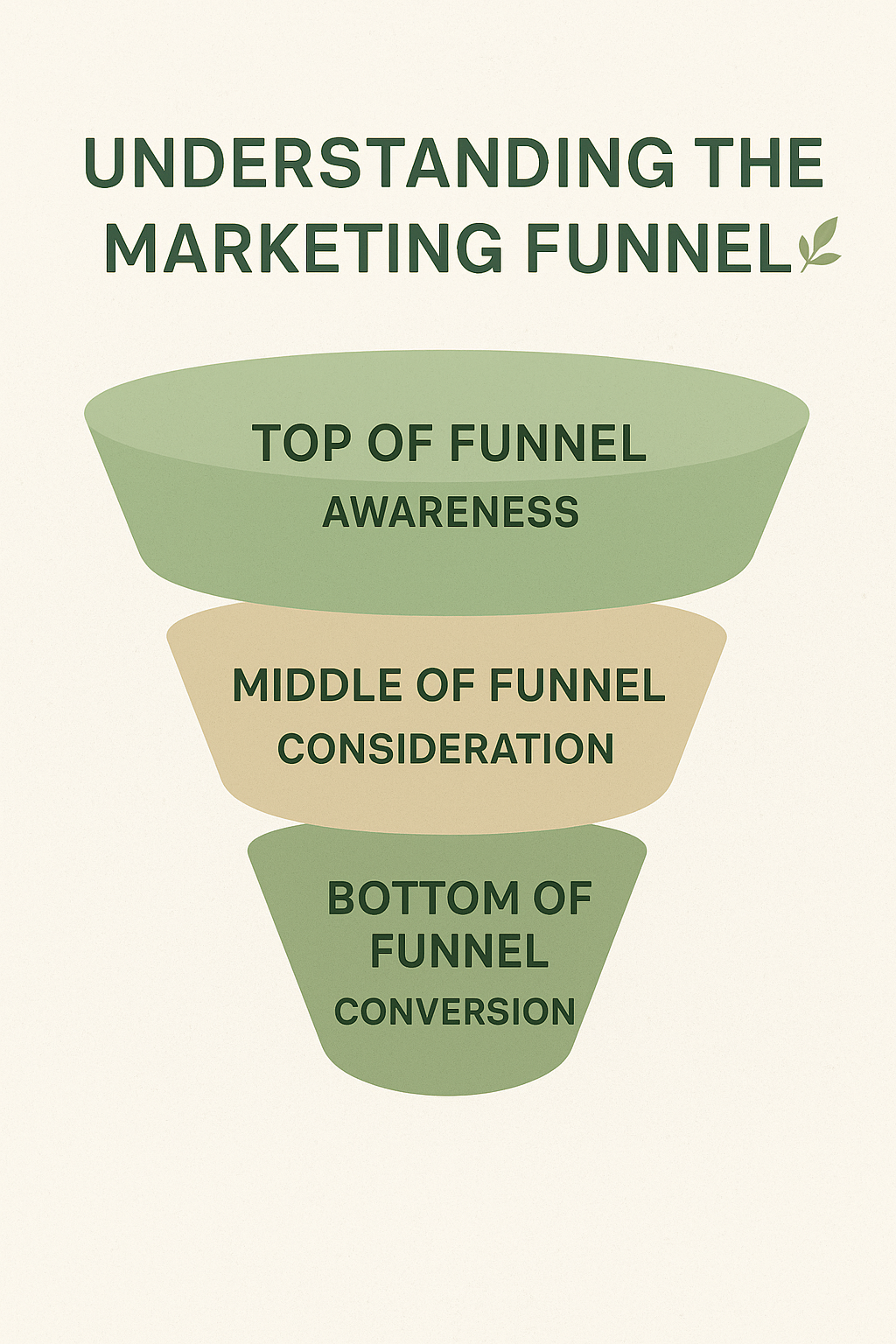Understanding the Marketing Funnel: Why It Matters for Your Business 🌱
If you’ve ever wondered why some marketing efforts seem to work while others don’t, understanding the marketing funnel can help. The marketing funnel is a framework that explains how people move from first discovering a business to becoming a customer. It helps clarify where to focus your marketing efforts and why certain strategies work better at different stages.
What Is a Marketing Funnel?
A marketing funnel is a visual representation of a customer’s journey. Imagine a funnel: wide at the top and narrow at the bottom. At the top, many people are just becoming aware of your business. As you move down the funnel, fewer people progress, but those who do are more likely to make a purchase.
The funnel typically has three main stages:
Top of Funnel (Awareness)
This is the stage where potential customers first hear about your brand. They might come across a social media post, read a blog, or see an ad. The focus here is on reaching a broad audience and introducing your business.Middle of Funnel (Consideration)
Once people are aware of your business, they start evaluating whether your product or service could meet their needs. They might sign up for a newsletter, download a free resource, or engage with your content. At this stage, providing helpful information and building trust is key.Bottom of Funnel (Conversion)
This is where leads make a decision to purchase or take a meaningful action. Tools like case studies, reviews, or product demos can help guide people through this stage.
Why the Marketing Funnel Is Important
Understanding the marketing funnel is valuable because it helps businesses:
Understand Audience Behavior: Knowing what stage a person is in helps tailor messaging and offers appropriately.
Identify Weak Points: The funnel makes it easier to see where potential customers drop off and adjust strategies to keep them engaged.
Organize Marketing Efforts: Rather than trying to do everything at once, businesses can focus on the most effective tactics for each stage.
Measure Success: Tracking engagement at each stage provides insight into what’s working and what needs improvement.
The marketing funnel is less about “selling” and more about guiding people through a journey. Even small adjustments like providing educational content for new audiences or clear next steps for interested prospectsn can improve how people experience your brand.
By understanding the funnel, businesses can make marketing more strategic, purposeful, and easier to measure helping ensure that efforts connect with the right people at the right time.

